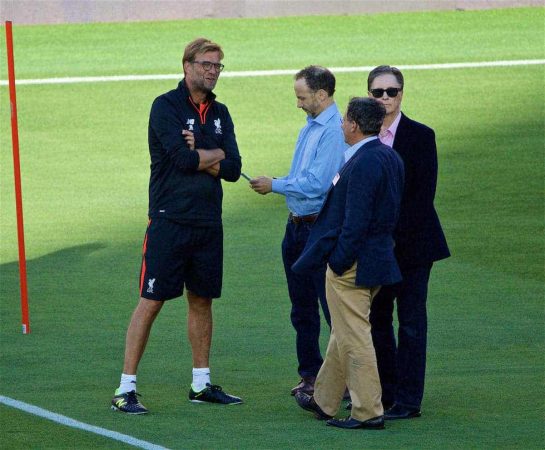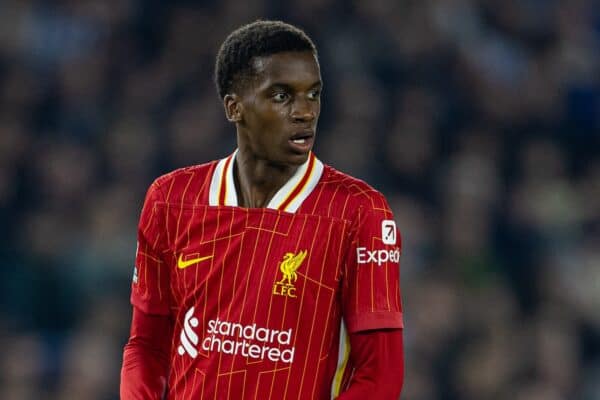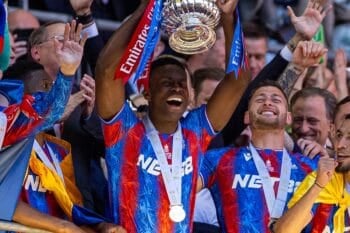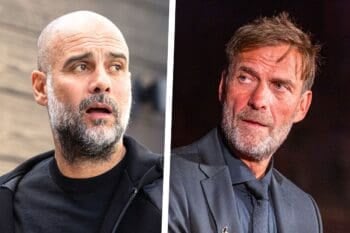A football finance expert has attempted to explain how and why Liverpool didn’t spend big this summer – and indeed, why their approach is more “restrained” than other Premier League clubs.
Owners Fenway Sports Group have faced criticism from some fans for their lack of summer spending, despite Jurgen Klopp insisting that the club were looking and would move if the right player became available at the right price.
The signing of Ibrahima Konate combined with sales of squad players such as Xherdan Shaqiri, Marko Grujic and Harry Wilson, meant that Liverpool’s ‘net spend’ was actually in profit. Instead, the club focussed on new contracts for key players.
Finance analyst SwissRamble explains in a typically detailed thread on Twitter how Arsenal spent £149m on signings, Man United £162m, Man City £115m and Chelsea £108m.
It is explained how Liverpool have the second-highest wage bill in the country, even before new deals for Fabinho, Alisson, Trent Alexander-Arnold, Virgil van Dijk, Andy Robertson and Jordan Henderson this summer.

Key Points
- LFC wage bill is the second highest in England
- LFC estimated to have ‘lost’ £152m in revenue during pandemic
- LFC have paid £26m bank loan in last 10 years: Man United have paid out £448m
- FSG have put in £136m financing in the last 10 years
And the effects of the pandemic are estimated to have seen the club miss out on over £150 million in revenue – affected by matchday revenue, TV broadcasting rebates, and commercial income losses.
That figure, presumably, also does not take into account the commercial revenue bump that the club would have had by winning the title during normal times. For instance, a parade with up to one million people never happened.
Based on these assumptions, #LFC will have lost £152m over the past 2 seasons (2019/20 £29m and 2020/21 £123m), split between match day £92m, broadcasting £27m & commercial £33m. These figures are only indicative, but for sure the club has missed out on a lot of money. pic.twitter.com/157gtA20gd
— Swiss Ramble (@SwissRamble) September 6, 2021
Meanwhile, it’s explained how player sales have always played such a key role in Liverpool’s growth under FSG in the last 10 years, but those have again been hit by the pandemic:
Liverpool “could invest more money in the transfer market, but this would mean them changing their sustainable business model. They have always tried to “sell to buy”, but this has proved difficult in the current environment, as the usual purchasers are suffering financially.”
Other clubs, especially in the case of Man United have taken on debt in order to finance signings this summer, but that has never been the way Liverpool operate – and for good reasons.
All in, Liverpool’s sustainable business model under FSG, has seen them hit hardest by the pandemic.

















Fan Comments